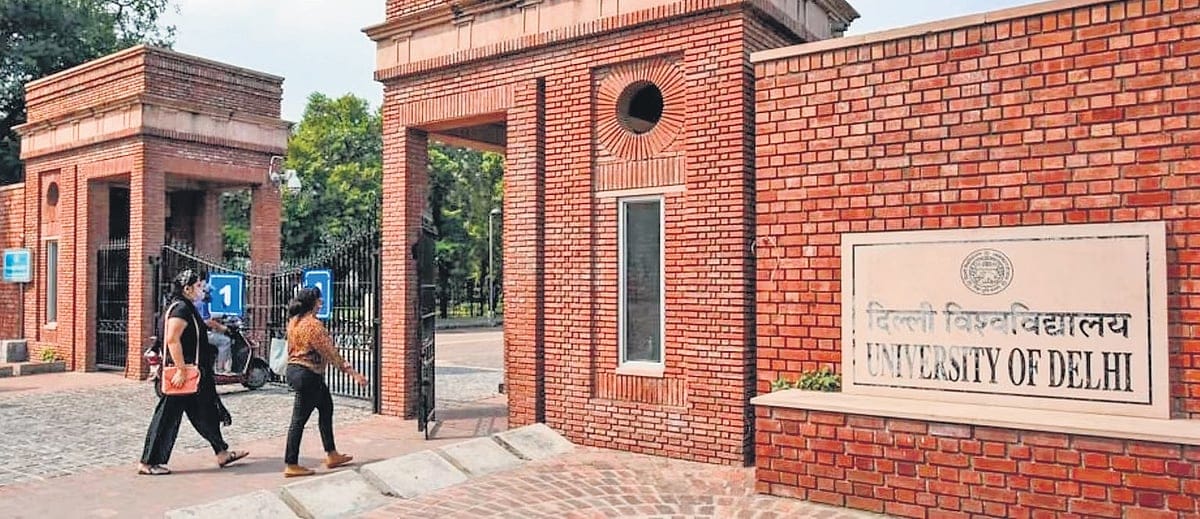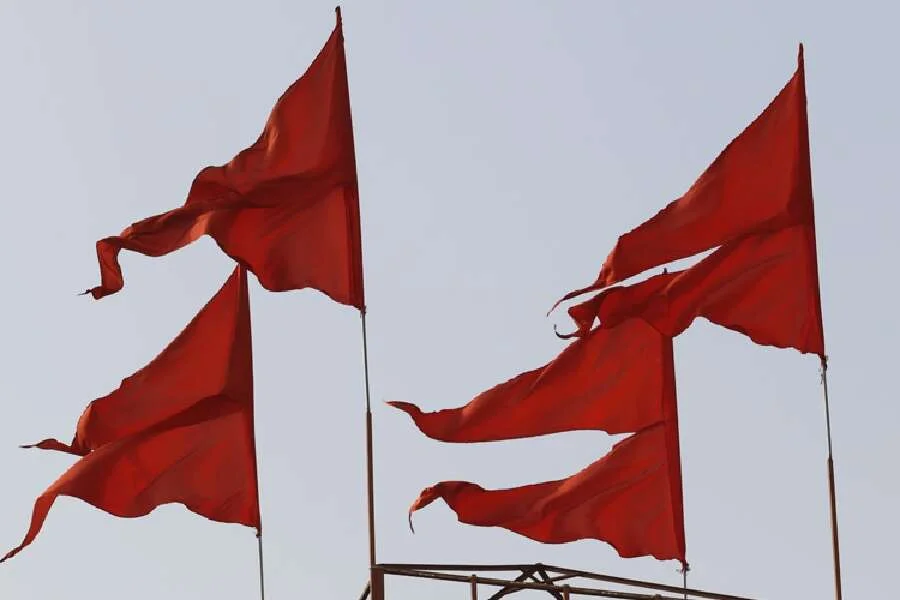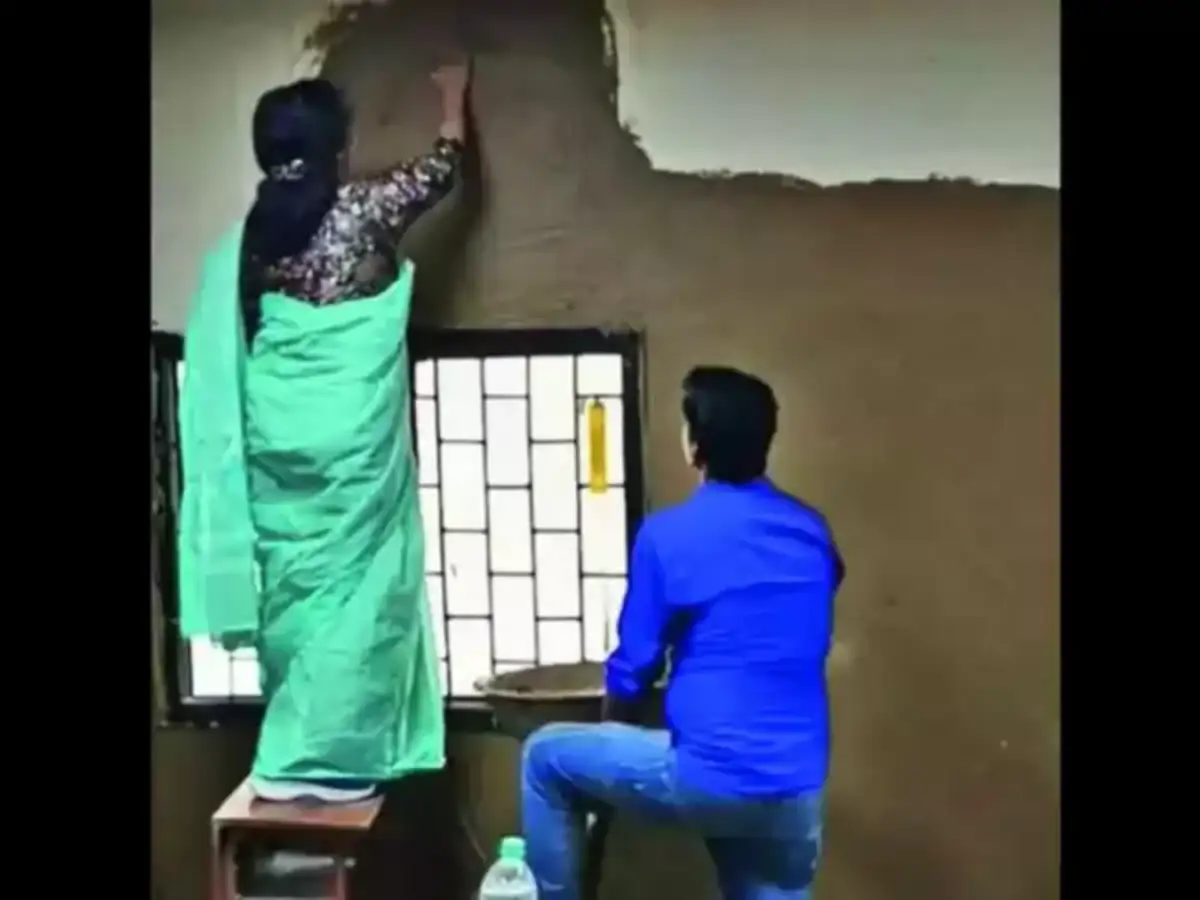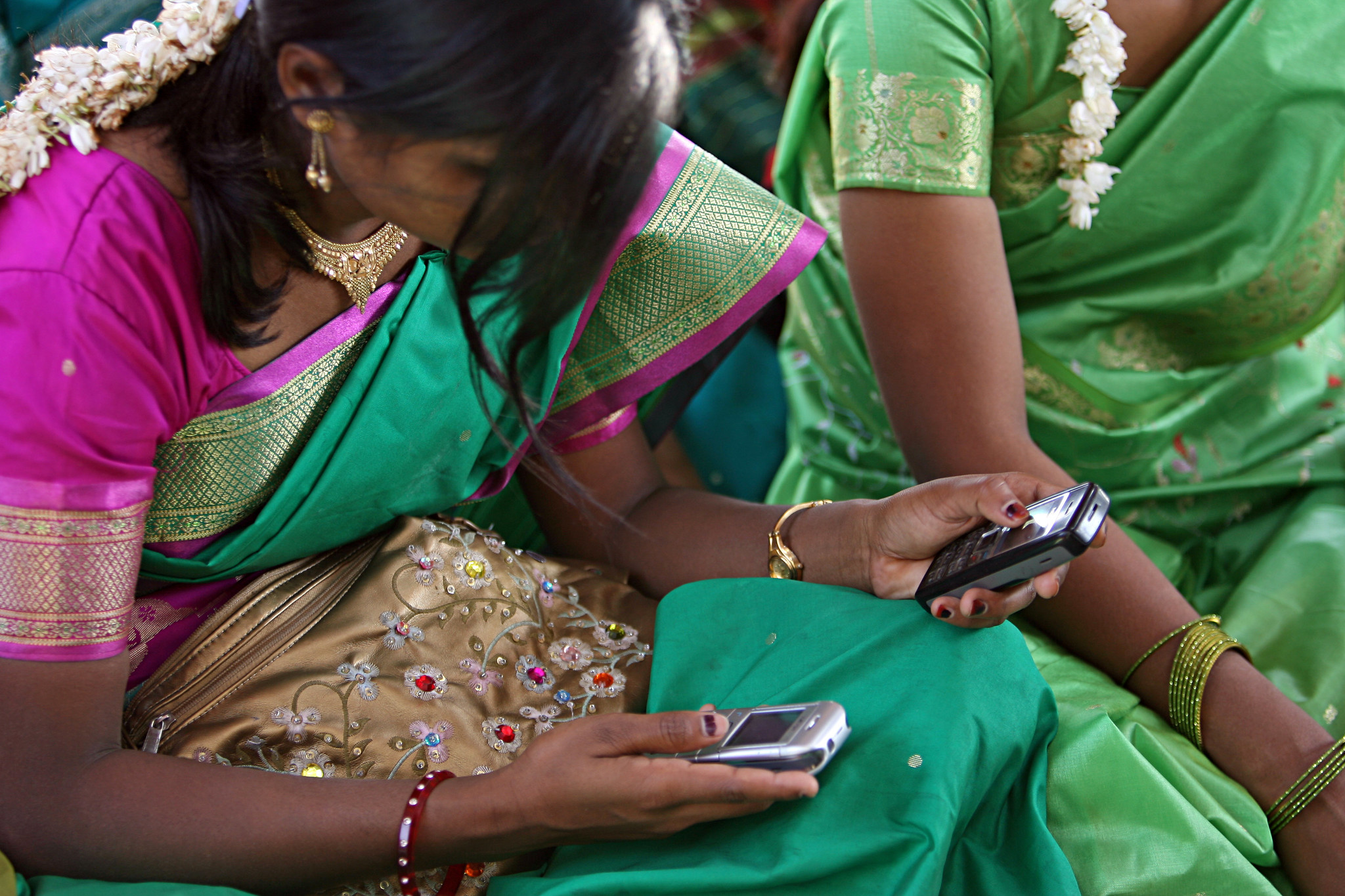Educational spaces nourish scientific consciousness among people to enhance their growth and development and possess critical analysis to explore and observe their surroundings. But what if there is deterioration in educational institutions and superstitions, myths and misconceptions take over these spaces. One such instance was gleaned from a recent incident that took place in Lakshmibai college, University of Delhi, where the principal, Prof. Pratyush Vatsala smeared cow dung on the classroom walls for research endeavors to control heat and generate cooling effects.
It is worthwhile to note that the principal, who is supposed to have a barrage of qualifications to hold a top position in the educational institution, lags behind in science, and misconceptions dominate her mind. With confidence, she stood on a chair and applied cow dung onto the concrete walls, questioning scientific temper, and its inculcation among students.
On the one hand, the students demand that the administration provide basic facilities, including fans and coolers. On the other hand, the principal resorted to promoting the myth. It is important to bear in mind that superstitions in educational spaces are detrimental for scientific temperament to flourish.

Her unscientific appearance was caught on camera and went viral. It was even suggested that cow dung plastering is part of a research work entitled ‘Study of Heat Stress Control by Using Traditional Indian Knowledge‘. Terms such as Ancient knowledge, Traditional Knowledge, Traditional method, etc., are used to corroborate an unscientific temperament in India. One can even find articles on the internet, supporting the idea that cow dung has been in use for generations in rural areas to provide cooling effects to houses.
The notion is identified as part of traditional knowledge but it has not yet been scientifically proven to combat unbearable heat in summers. In an article entitled ‘What is the Science of Cow Dung, & Cooling?‘ the argument is made regarding cow dung as an age-old material for plastering homes to keep living spaces clean and disease-free in rural India. Such an argument has been made in the aftermath of plastering the concrete classroom walls.
In response to the above argument, there is a research titled ‘Pathogenic Bacteria and Parasites of Human Importance from Cow Dung‘, that states, ‘cow dung contains pathogenic bacteria and parasites like Escherichia coli, Cryptosporidium spp, and Entamoeba Histolytica that can be infectious to the handlers and farmers.’
Smearing cow dung on walls is just one superstition masqueraded as ancient knowledge
In society, superstitions have long persisted, and both educated and uneducated people hold on to them. It is worthwhile to mention that educational campuses are built for students to challenge superstitions and rigidities that are widespread outside campuses, and contribute to growth, development, and the flourishing of scientific temper.
It is worthwhile to mention that educational campuses are built for students to challenge superstitions and rigidities that are widespread outside campuses, and contribute to growth, development, and the flourishing of scientific temper.
The word ‘ancientness’ or ‘ancient knowledge’ is used to masquerade superstitious beliefs that play a significant role in deteriorating scientific temper in educational spaces. Besides, it is also supremacist politics that contributes, on a large scale, to scientific distemper. One such instance is of BJP MP Biplab Deb claiming the existence of internet satellites during Mahabharata, supporting mythology.
Prof. Nageshwar Rao stood on a podium at the Indian Science Congress claiming that Kauravas were born using test tube technologies and there was knowledge about missiles that people have had since ancient times. Furthermore, he mentioned in his speech that prior to Charles Darwin’s Theory of Evolution, there was ‘Dashavtar’ which means ten avatars of Lord Vishnu.
The infiltration of superstitions into academia is a matter of concern. In Uttar Pradesh, the government has called for a comprehensive plan to promote cow protection, and use of cattle in the expansion of the state’s economy. Furthermore, the plan has gained support from the State Dairy Development Department to introduce cow education in academia, and procure ‘gau mutra’ cow urine for medical research purposes at Rs 5 per litre.
The State Cabinet Minister of Dairy Development, Dharampal Singh, said, ‘We have chalked out a plan to incorporate cows in education, research, medical and agriculture. If a student learns about the importance of cows from the beginning, they can understand their productivity. Initially, we are planning to introduce it in primary schools. Then we will incorporate it in secondary and higher education.‘
In addition, the government is planning to initiate research endeavours on gau mutra and gobar to ensure students’ understanding of their benefits.
In addition, the government is planning to initiate research endeavours on gau mutra and gobar to ensure students’ understanding of their benefits. This plan poses a challenge to scientific development among students at different levels. Rationalism needs significant space in the educational domain. Harsh Vardhan is known to have made a distorted claim regarding Stephen Hawking who believed that the Vedas contain a theory worthier than Einstein’s equation, e = mc², which enunciates the conversion of energy to mass and vice versa.
Stark infrastructure gap in educational institutions remains unaddressed
In the midst of these myths and distortions, the need to bridge infrastructural gaps in the educational sector remains unaddressed. This is the reason this should be taken into consideration for multiple reforms. Under the Ministry of Education, the Unified District Information System released data that reveals that of the over 14.71 lakh schools in India, 1.52 lakh schools do not have functional electricity.
At Lakshmibai college, a student from the students’ union said, following the cow dung plastering on the concrete walls, ‘they have been receiving complaints over the past week about rising temperatures and malfunctioning fans.‘
In the era of technological advancement, a large number of children cannot go to schools. In an article in The Hindu, it is called the biggest challenge to India as socio-economically underprivileged children get little or no attention. Economist Amir Ullah Khan stated that the privileged are reluctant to accept that access to education is not easy in India.
According to him, around 50% of children in India do not have access to quality education after primary school. Furthermore, 90% have no access to postgraduate courses. Due to the socio-economic plight, it is difficult for downtrodden families to meet their basic needs; it is a huge challenge for them to send their children to schools.
Last year, the Union government informed the Lok Sabha that around 1.17 million children had not been enrolled in primary, secondary, senior secondary education, or were classified as Out of School Children (OoSC), for the year 2024-25.
This statistical evidence tells us that it is an arduous task for a large number of children to access quality education, and develop a scientific temperament that inculcates in them skills, a sense of critical analysis and observation. If children enter educational institutions, there is another challenge that can halt their ability to think: the infiltration of myths and misconceptions.
If children enter educational institutions, there is another challenge that can halt their ability to think: the infiltration of myths and misconceptions.
Following the NCERT’s announcement about the removal of Charles Darwin’s Theory of Evolution, around 1,800 scientists, teachers, educators, and science popularisers penned a letter to NCERT pertaining to the removal. According to them, ‘children will remain handicapped in their thoughts as they will not be exposed to the basics of science.‘

It is quite imperative to mention that a deteriorating scientific temperament among students in educational institutions will prevent them from observing socio-economic and political ills. Without critical examination, it is impossible to comprehend the roots of problems, and create solutions.
About the author(s)
Nashra Rehman finds her profound interest in addressing the plight of Muslim women and their unappreciated marginalisation. Her focus remains on bringing a novel argument to life.







